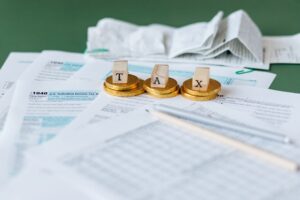North Carolina (NC) Property Tax Info
| Property Tax Rank in US (best =1) | 34 |
| Corporate Tax Rank in US (best =1) | 3 |
| Sales Tax Rank in US (best =1) | 21 |
| Effective Real-Estate Tax Rate | 0.90% |
| Is Personal Property Taxable | Yes |
| North Carolina State Website | http://nc.gov/ |
| Capital | Raleigh |
| Largest City | Charlotte |
| Largest Metro Area | 2,569,213 |
Important Dates
For Real Property
- North Carolina Property Tax Filing Deadline First business day in January through January 31.
- North Carolina Property Tax Appeal Deadline No earlier than the first Monday in April and not later than the first Monday in May
For Business Personal Property
- BPP Filing (Rendition) Deadline January 31 (may extend to Apr 15)
- BPP Appeal Deadline 30 days from the date on the tax bill
North Carolina Property Tax Rate
North Carolina Property taxes are a key source of revenue for local governments, providing funding for services such as public education and law enforcement.

North Carolina’s property tax rates are relatively low in comparison to those of other states. The average effective property tax rate in North Carolina is 0.77%, well under the national average of 1.07%. North Carolina’s property tax rates are nonetheless relatively low in comparison to what exists in other states. The average effective property tax rate in North Carolina is 0.77%, which compares rather favorably to the 1.07% national average.
How does North Carolina Property Taxes Works?
North Carolina’s property tax is “ad valorem,” which means that it is based on the value of property. A county assessor determines the value of a property and is required to revalue a property at least once every eight years. The goal of the reappraisal is to determine the current market value of the property.
Since that reappraised value will affect a homeowner’s taxes for as many as eight years, it is important for homeowners to ensure that the value is accurate. An appraisal that is too high can mean nearly a decade of over-taxation.
There is no state property tax in North Carolina, which means tax rates are determined entirely by local governments. Cities and counties can levy their own taxes, and special tax districts in some areas also collect property taxes for services like fire protection.
 United Paramount Tax Group
United Paramount Tax Group